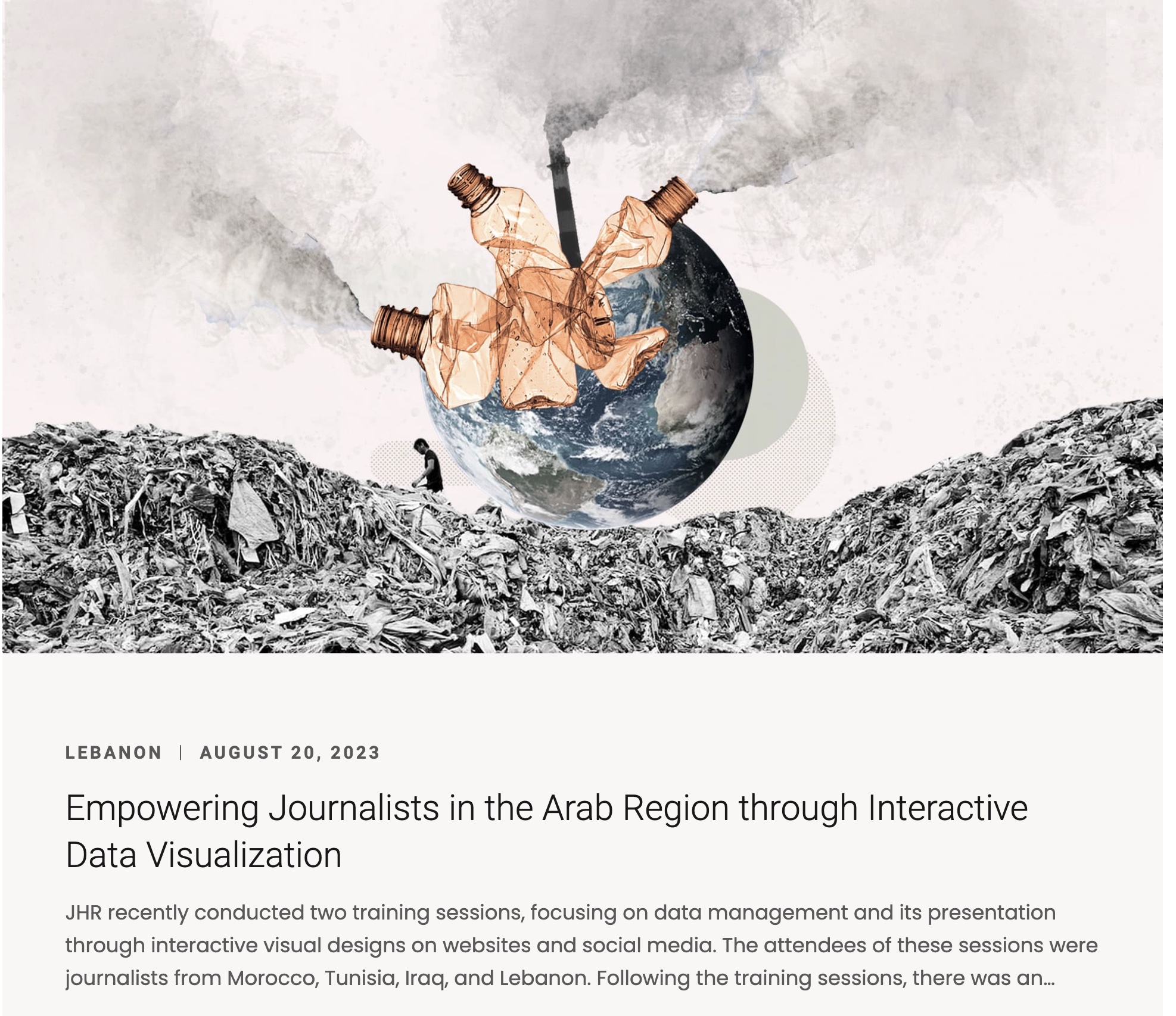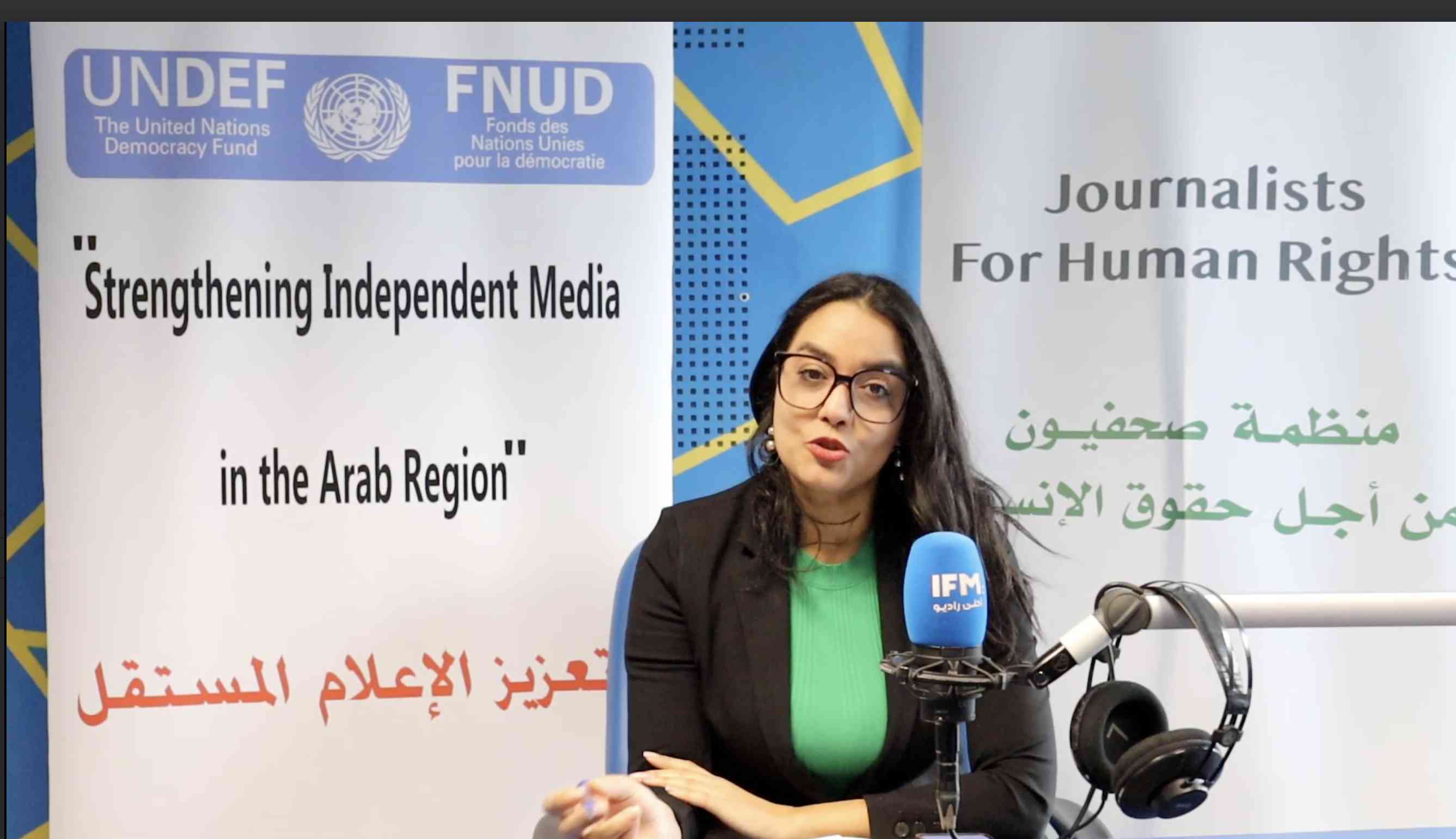Lesson Learned: Strengthening Independent Media in the Arab Region
An alternative strategy to foster more impactful and sustainable practices among media and civic actors in multi-country projects is to focus on specific themes of common interest, such as climate justice and gender or minority rights (which figured prominently in this project) across countries. Not only would this allow for the design of catered trainings, skill-and-capacity-building activities that focus on specific human rights areas but would sustain the network of journalists and civic actors focused on common interests regionally and internationally. In this case, project participants from different countries have been able to share experience, lessons, barriers, and solutions resulting in productive media outputs.
The project aims to strengthen independent media in the Arab region so as to build greater accountability and better governance, by improving the working environment for journalists; advancing media freedom and accessible information and data; enhancing the capacity of freelance and full-time journalists to cover sensitive human rights stories; and improving journalists’ legal knowledge through strong working partnerships with civic actors. Project activities also incorporate responses to the Covid-19 crisis for journalists on the front line.



